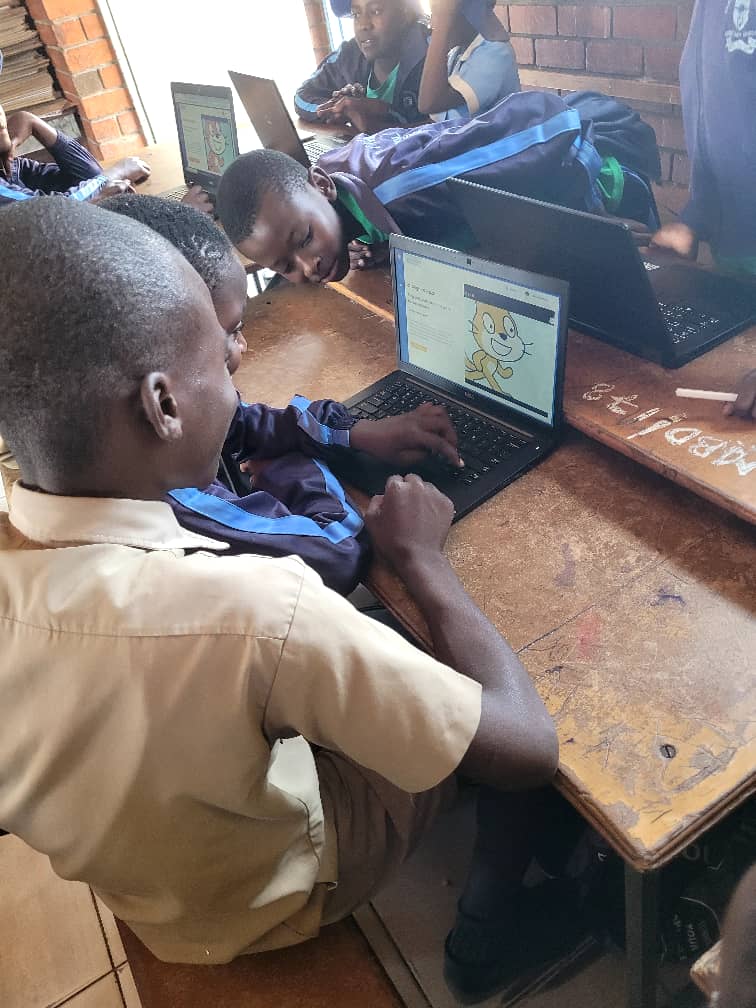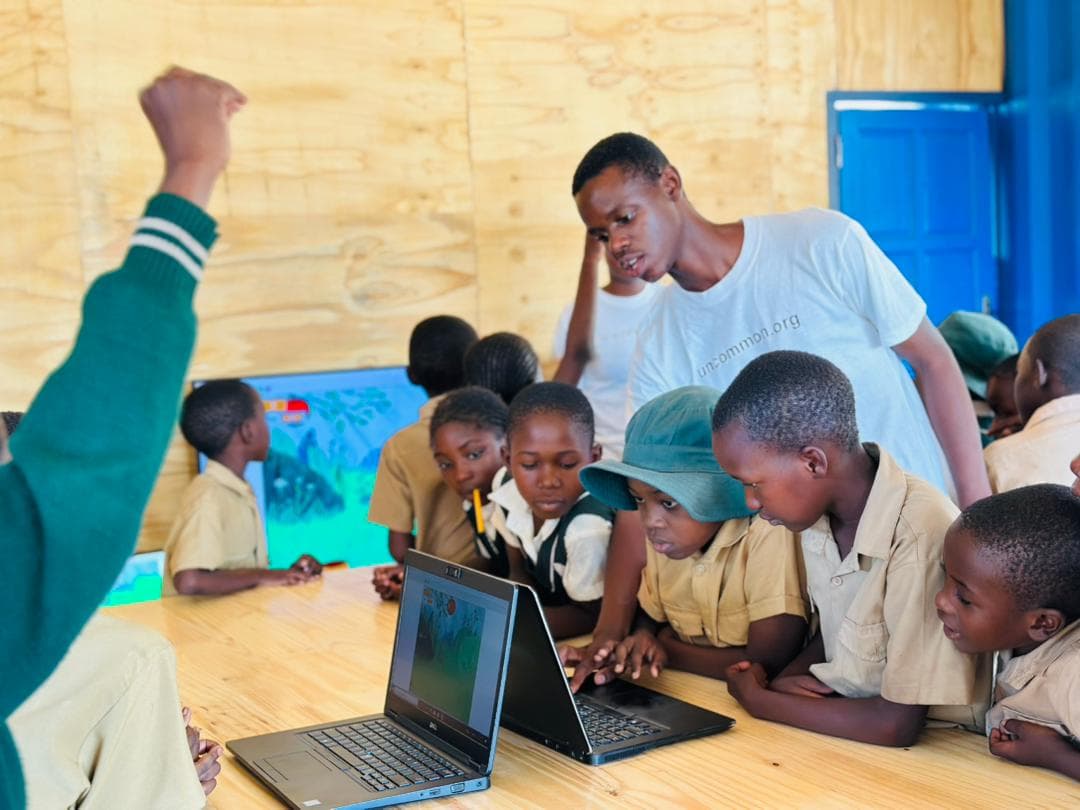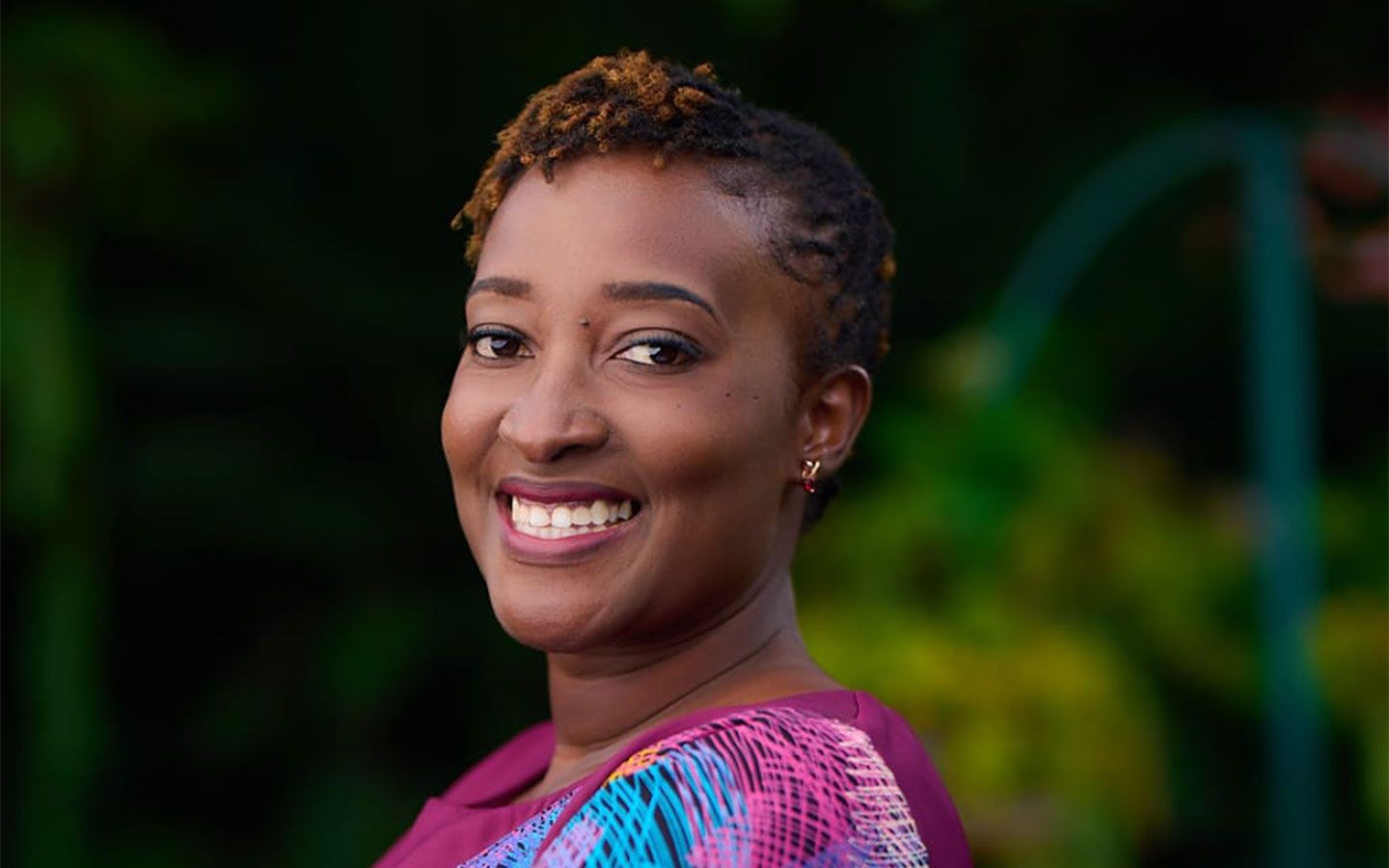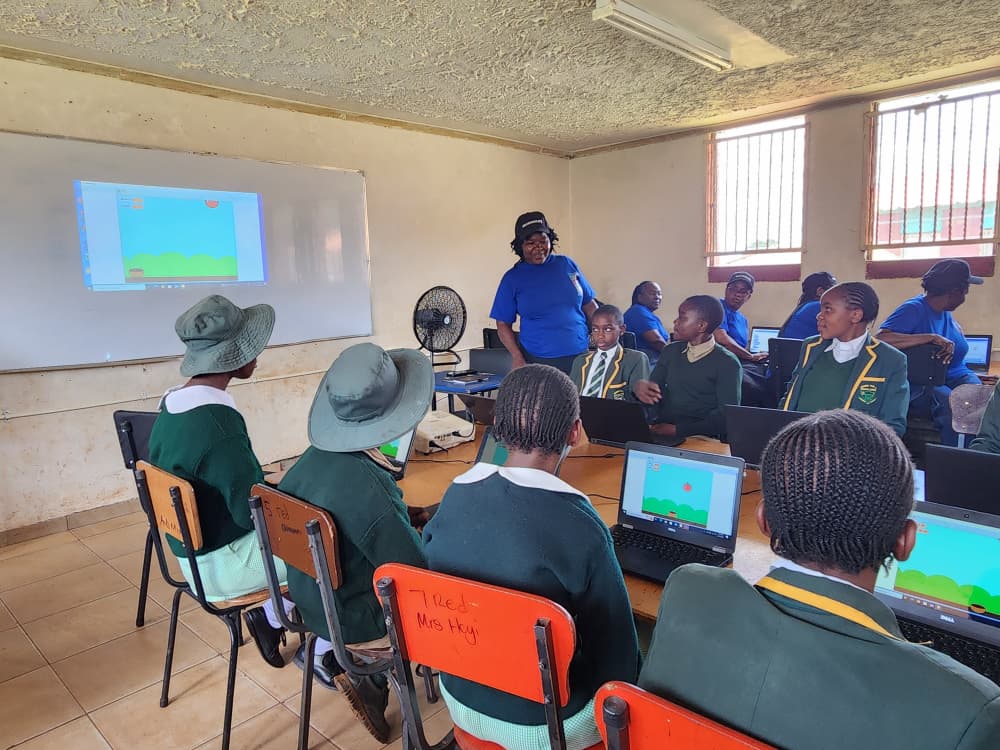
12-year-old Tadiwa sits in front of a computer for the first time in her life. Within an hour, she's created a simple game where a character jumps over obstacles. Her eyes light up as she realizes she just instructed a machine to do exactly what she imagined. She's discovered her superpower.
That's the magic we witness every day.
Before you imagine children hunched over screens typing mysterious symbols, let's break down what coding means. Think of it as giving very detailed instructions to a computer, like explaining to a friend how to make tea, except your friend follows instructions exactly as you say them, no matter how silly.
When kids code, they're essentially having conversations with computers. They tell the computer: "When the player presses the spacebar, make the cat jump. If the cat hits a pipe, end the game." The computer listens and obeys. It's that simple.

Every app on your phone, every website you visit, every digital tool you use - someone wrote instructions (code) to make it work. When children learn to code, they stop being mere users of technology and start becoming its creators.
The Power of Problem-Solving: Coding teaches kids to break down big, scary problems into smaller, manageable pieces. Can't figure out why your game character won't move? Let's check each instruction step by step. This logical thinking follows them into math class, helps them organize their school projects, and teaches them how to tackle challenges systematically.
The Power of Creation: While other subjects often have "right" answers, coding encourages kids to experiment and create. Want to make a game about farming? Code it. Curious about how weather apps work? Build one. Coding transforms children from consumers into inventors, giving them the tools to bring any idea to life.
The Power of Resilience: In coding, things rarely work perfectly the first time. Kids quickly learn that errors (we call them "bugs") aren't failures, they're puzzles to solve. This builds incredible resilience. When their code doesn't work, they don't give up; they debug. They learn that failure is just the first step toward success.
The Power of Logical Thinking: Computers are beautifully logical. They do exactly what you tell them to do. This teaches children to think clearly and communicate precisely. If their instructions are unclear, the computer won't understand. Kids learn to organize their thoughts and express them clearly, skills that help in every subject and every aspect of life.

At Uncommon, we don't start with boring syntax or complicated theory. We start with games. Kids learn to code by building the kinds of games they love to play. They create jumping characters, design obstacle courses, and add sound effects. Learning feels like playing because, well, it is.
We use something called the Socratic Method: instead of lecturing, our instructors ask questions that guide students to discover answers themselves. "What do you think would happen if we changed this number? Why do you think the character is moving too fast?" This approach builds confidence and critical thinking.
Many of our bootcamp students have never touched a computer before joining our program. Yet within weeks, they're creating their own games and teaching younger children. That transformation, from never having used technology to confidently creating with it, is what real empowerment looks like.
To reach every child in Zimbabwe, we've developed the Uncommon Playground, a special coding platform that allows children to learn coding through self-paced, game-based lessons.
We're training teachers across the country to use this tool, multiplying our impact from the 10,000 students we reach directly to potentially hundreds of thousands through equipped educators.
When we teach a child how to code, we're giving them confidence in a digital world, problem-solving abilities that transfer to every area of life, and the power to bring their ideas to life.
Our goal is ambitious: to make Zimbabwe the tech capital of Africa. But it starts with moments like Tadiwa's, one child, one computer, one moment of realization that they have the power to create, to solve, to build the future they want to see.
That's not just education. That's transformation. That's what superpowers look like.
One of the core needs of our Teacher Training and Youth Coding Programs is more computers to donate to our partner schools. If you would like to support this program, please consider donating to our Computer Drive, so we can equip more schools with the knowledge and resources they need to succeed in the digital age.
Visit https://uncommon.org/computers

We sat down with our Country Director, Michelle Gwatiringa and had a conversation about th...

In 2020, in the middle of a global pandemic, something quiet but powerful began at Warren ...

For nearly three years, I lived alone, paying rent, sometimes eating, sometimes going with...